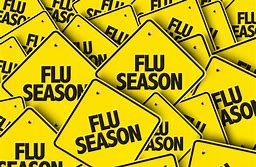
Strengthen Your Immune System
A person’s immune system is his/her body’s only defense against foreign invaders such as viruses and bacteria. Since your immune system is what protects your body from infection, it is not surprising that if you have a weak immune system you may be more prone to frequent infections such as the common cold, flu, pneumonia, and other health issues. Just as in taking pro-active steps in improving your risks for heart disease, cancer, Type 2 Diabetes, obesity, and other health concerns, there are several things in your lifestyle and dietary behaviors that, if modified, will help strengthen our immune system.
- Get enough sleep. In a study of 164 healthy adults it was shown that people who slept less than six hours each night were more likely to catch a cold than people who slept six or more hours per night. a. Adults should aim for seven or more hours of sleep per night b. Teens need between 8-10 hours of sleep per night c. Younger children and infants need up to 14 hours of sleep per night.
- Eat more whole plant foods. Fruits, vegetables, nuts, seeds, and legumes are rich in nutrients and antioxidants that may give you the upper hand against harmful pathogens, which lead to disease.
- Eat more healthy fats. Fats found in olive oil and salmon may boots your body’s immune response to pathogens by decreasing inflammation. A word about fats: a. Monounsaturated Fats are diet-friendly and heart-healthy fats found in foods such as olive oil, nuts, and avocados. b. Polyunsaturated Fats are also “friendly” fats found in fish, nuts, and seeds. c. Trans Fats are “bad” fats that increase the risk of cardiovascular disease and raise unhealthy LDL cholesterol levels.
- Limit your consumption of added sugars. White blood cells attack and destroy ’foreign invaders’ such as viruses and bacteria. Nearly all forms of sugar interfere with the white blood cells’ ability to perform their job. In one study, when healthy volunteers consumed a large amount (100 grams) of refined sugar, their white blood cells’ ability to destroy bacteria was impaired for at least five hours.
Ironically, sugar is in almost every over-the-counter cough syrup, cough drop, and flu remedy designed to help us fight coughs and colds. Sugar is also in commercially sold chicken soup, another remedy we take when our immune system is already compromised. It is important to read the Ingredient and nutrition labels of everything – know what you are putting in your body BEFORE you put an item in your cart.
- Engage in moderate exercise. While prolonged intense exercise can suppress your immune system, moderate exercise can give it a boost. Studies indicate that even a single session of moderate exercise can boost the effectiveness of vaccines in people with compromised immune systems. What’s more, regular, moderate exercise may reduce inflammation and help your immune cells regenerate more regularly. Examples of moderate exercise include brisk walking, steady bicycling, jogging, swimming, and light hiking. Most people should aim for at least 150 minutes of moderate exercise per week.
- Stay hydrated. Hydration doesn’t necessarily protect you from germs and viruses, but preventing dehydration is important to your overall health. Dehydration can cause headaches and hinder your physical performance, focus, mood, digestion, and heart and kidney function. These complications can increase your susceptibility to illness.
Health authorities commonly recommend eight 8-ounce glasses, which equals about 68 ounces, or half a gallon. This is called the 8×8 rule and is easy to remember. To prevent dehydration, you should drink enough fluid daily to make your urine pale yellow. Water is recommended because it’s free of calories, additives, and sugar. It’s important to note that older adults begin to lose the urge to drink, as their bodies do not signal thirst adequately. Older adults need to drink regularly even if they do not feel thirsty.
- Manage your stress. Relieving stress and anxiety is key to immune health. Long-term stress promotes inflammation, as well as imbalances in your immune cell function. Activities that may help you manage your stress include meditation, exercise, journaling, yoga, and other mindfulness practices. If you cannot get your stress/anxiety under control you may want to consider seeing a licensed counselor or therapist, whether virtually or in person.
Prolonged stress in children can have serious effects and can suppress their immune response.
- Understand the effects of supplement. There is a plethora of information pertaining to the effects of supplements, particularly in relationship to their ability to treat or prevent illness. However, there are not a lot of valid data to confirm their effectiveness. The list below offers small study findings for some of the most known supplements.
a. Vitamin C. While vitamin C will not prevent the common cold, in a review in more than 11,000 people taking 1,000-2,000 mg of vitamin C per day reduced the duration of their colds by eight percent in adults and 14 percent in children.
b. Vitamin D deficiency can increase your chances of getting sick, so supplementing may counteract this effect. c. Zinc. As in the case of vitamin C, zinc will not prevent you from getting a cold but in a review of 575 people suffering from the common cold, supplementing with more than 75 mg of zinc per day reduced the duration of the cold by 33 percent. d. Elderberry. One small review found that elderberry could reduce the symptoms of viral upper respiratory infections. e. Echinacea. A study in more than 700 people found those who took echinacea recovered from colds slightly more quickly than those who received a placebo or no treatment, but the difference was not significant. f. Garlic. A high quality, 12-week study in a small sampling of 146 people found that supplementing with garlic reduced the incidence of the common cold by approximately 30 percent.



